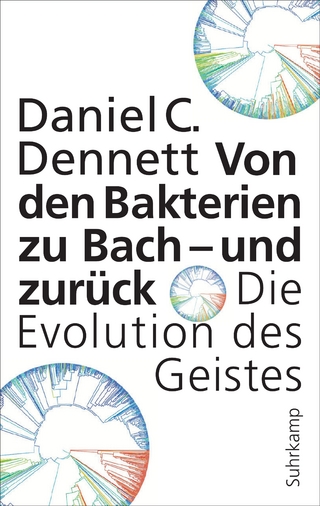
The Value of Rationality
Oxford University Press (Verlag)
978-0-19-884583-6 (ISBN)
Ralph Wedgwood gives a general account of the concept of rationality. The Value of Rationality is designed as the first instalment of a trilogy - to be followed by accounts of the requirements of rationality that apply specifically to beliefs and choices. The central claim of the book is that rationality is a normative concept. This claim is defended against some recent objections. Normative concepts are to be explained in terms of values (not in terms of 'ought' or reasons). Rationality is itself a value: rational thinking is in a certain way better than irrational thinking. Specifically, rationality is an internalist concept: what it is rational for you to think now depends solely on what is now present in your mind. Nonetheless, rationality has an external goal - the goal of thinking correctly, or getting things right in one's thinking. The connection between thinking rationally and thinking correctly is probabilistic: if your thinking is irrational, that is in effect bad news about your thinking's degree of correctness. This account of rationality explains how we should set about giving a theory of what it is for beliefs and choices to be rational. Wedgwood thus unifies practical and theoretical rationality, and reveals the connections between formal accounts of rationality (such as those of formal epistemologists and decision theorists) and the more metaethics-inspired recent discussions of the normativity of rationality. He does so partly by drawing on recent work in the semantics of normative and modal terms (including deontic modals like 'ought').
After studying at Oxford, King's College London, and Cornell, Ralph Wedgwood taught at the Massachusetts Institute of Technology (1995-2002) and at Merton College, Oxford (2002-2011), before taking up his current position at the University of Southern California in 2012. He works principally on ethics and epistemology. His interests in ethics include the history of ethics (especially Plato and Butler) and issues in applied political philosophy (especially relating to same-sex marriage); but most of his work in ethics has focused on metaethics and the theory of rational choice and practical reason. He is the author of The Nature of Normativity (Oxford University Press, 2007), and of about fifty articles in various volumes and philosophy journals.
Introduction
1: Is Rationality Normative?
2: The Beginnings of an Answer
3: 'Rationally Ought' Implies 'Can'
4: The Pitfalls of 'Reasons'
5: Objective and Subjective 'Ought'
6: Rationality as a Virtue
7: Internalism Re-explained
8: Why Does Rationality Matter?
9: The Aim of Rationality: Correctness
Conclusion: Looking Ahead
| Erscheinungsdatum | 23.08.2019 |
|---|---|
| Verlagsort | Oxford |
| Sprache | englisch |
| Maße | 157 x 234 mm |
| Gewicht | 428 g |
| Themenwelt | Geisteswissenschaften ► Philosophie ► Erkenntnistheorie / Wissenschaftstheorie |
| Geisteswissenschaften ► Philosophie ► Ethik | |
| ISBN-10 | 0-19-884583-9 / 0198845839 |
| ISBN-13 | 978-0-19-884583-6 / 9780198845836 |
| Zustand | Neuware |
| Informationen gemäß Produktsicherheitsverordnung (GPSR) | |
| Haben Sie eine Frage zum Produkt? |
aus dem Bereich

![Was heißt Denken?. Vorlesung Wintersemester 1951/52. [Was bedeutet das alles?] - Martin Heidegger](/media/113619842)
